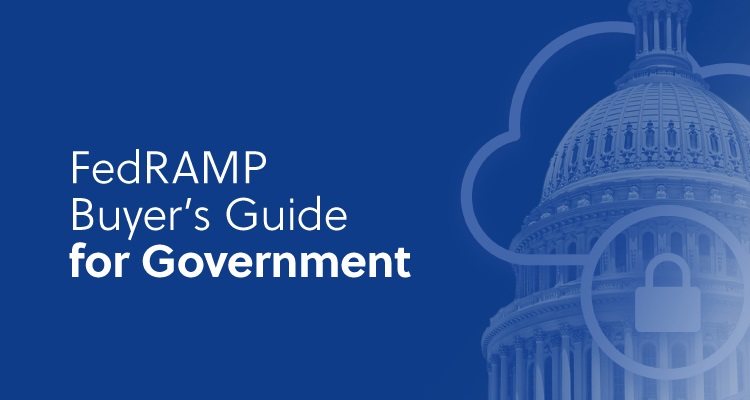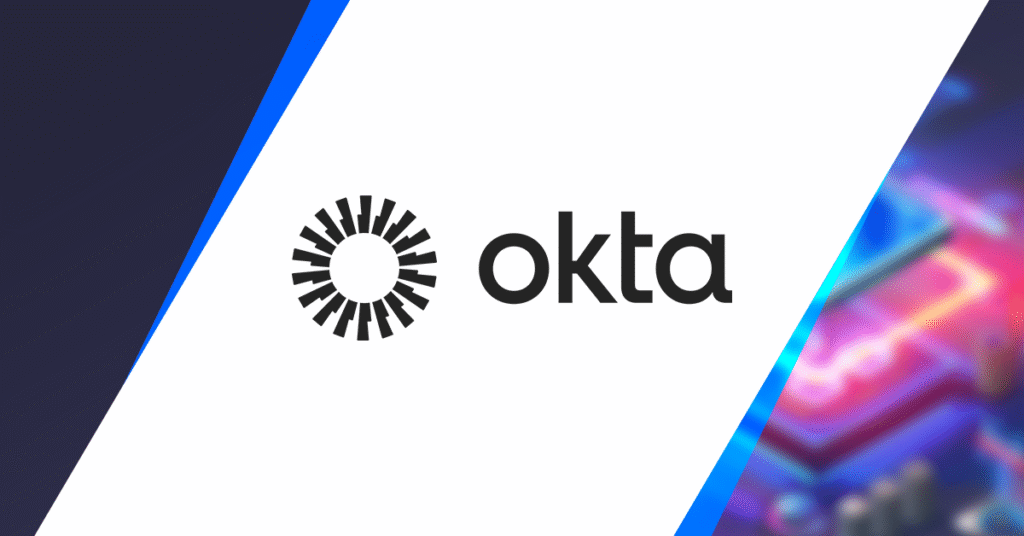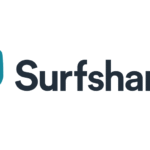Introduction
As organizations increasingly migrate to the cloud, cybersecurity and identity management have become central to safeguarding sensitive data and ensuring compliance. For government agencies and contractors, the stakes are even higher — they require platforms that meet strict federal security standards. That’s where FedRAMP (Federal Risk and Authorization Management Program) comes in.
FedRAMP provides a standardized approach to cloud security, ensuring that service providers meet rigorous compliance and operational controls before being approved for federal use. In this landscape, Okta has emerged as one of the most trusted identity and access management (IAM) solutions, earning FedRAMP Moderate Authorization for its robust suite of features.
But what does this certification mean for your organization — whether you’re in the public sector or a regulated private industry? In this article, we’ll break down what FedRAMP is, how Okta achieved its certification, and what benefits it brings to your cloud security strategy, both technically and practically.
Let’s explore how Okta delivers government-grade security — and why it matters.
What Is FedRAMP and Why Does It Matter?
FedRAMP, short for the Federal Risk and Authorization Management Program, is a U.S. government-wide initiative designed to standardize the security assessment, authorization, and continuous monitoring of cloud products and services used by federal agencies. Launched in 2011, FedRAMP ensures that cloud service providers (CSPs) like Okta meet strict cybersecurity requirements before working with the U.S. government.
The goal of FedRAMP is simple: protect sensitive government data in the cloud while streamlining the approval process. By adhering to a common set of NIST-based security controls, FedRAMP-certified providers offer peace of mind that their infrastructure is secure, continuously monitored, and resilient against cyber threats.

There are three levels of FedRAMP authorization—Low, Moderate, and High—each corresponding to the sensitivity of the data being handled. Most government agencies and contractors require at least FedRAMP Moderate, which covers data that could cause serious adverse effects if compromised.
For any organization looking to serve or partner with the U.S. government, FedRAMP compliance is not optional — it’s essential. Without it, cloud platforms cannot use for federal workloads. This makes it a critical benchmark for any SaaS provider aiming for credibility and trust in high-security environments.
FedRAMP also matters beyond the public sector. Businesses in healthcare, finance, education, and legal services benefit from working with FedRAMP-certified identity providers like Okta, as it signals strong security hygiene and a commitment to data protection best practices.
In short, FedRAMP is the gold standard for cloud security assurance in the U.S., and Okta’s certification is a strong vote of confidence for its security-first approach.
Okta’s FedRAMP Certification Explained
Okta is one of the leading identity and access management (IAM) platforms to earn FedRAMP Authorization, demonstrating its commitment to meeting strict government-level cybersecurity standards. In 2025, Okta holds a FedRAMP Moderate Authorization, which allows it to manage systems that handle controlled unclassified information (CUI) — a requirement for many federal agencies, contractors, and high-security industries.
This certification covers a wide range of Okta’s core services, including:
- Single Sign-On (SSO)
- Multi-Factor Authentication (MFA)
- Lifecycle Management
- Universal Directory
- API Access Management
Okta’s platform has been assessed by an accredited Third-Party Assessment Organization (3PAO) and meets over 300 security controls based on the NIST SP 800-53 framework. These controls include everything from data encryption and incident response to continuous monitoring and user activity auditing.
The authorization is listed on the FedRAMP Marketplace, which serves as a public registry of cloud providers approved for federal use. This transparency helps agencies and contractors choose tools that already meet federal security requirements, reducing time and complexity during procurement.
Beyond just ticking compliance boxes, Okta’s FedRAMP status shows that it’s trusted to protect highly sensitive information — and not just for government. Private-sector clients benefit, too, since FedRAMP is a strong indicator of world-class security architecture, data governance, and reliability.
In short, Okta’s FedRAMP certification means it’s not just secure — it’s certified secure at a level trust by federal institutions. That assurance makes Okta an ideal identity partner for organizations that take data protection seriously.
Security Benefits of Okta for Government and Regulated Industries
When it comes to protecting sensitive data in the cloud, Okta delivers enterprise-grade security trusted by government agencies and heavily regulated industries alike. With its FedRAMP Moderate Authorization, Okta meets a high bar for data confidentiality, integrity, and availability — but the benefits go far beyond compliance.
One of the biggest advantages is Zero Trust Architecture. Okta ensures that no one, inside or outside your network, is automatically trusted. Every access attempt is evaluated based on context — like device health, location, and user behavior — before permission is granted. This drastically reduces the attack surface, making it harder for bad actors to exploit stolen credentials.
Okta also enables robust Multi-Factor Authentication (MFA) and Adaptive MFA, which assess risk in real-time and step up security as needed. Government employees, contractors, or healthcare workers accessing cloud-based apps are required to verify their identities through methods like push notifications, biometrics, or physical security keys — adding layers of protection without adding friction.
For organizations managing large workforces or external partners, Lifecycle Management is a game-changer. Okta automates the provisioning and deprovisioning of access rights across thousands of applications. When someone leaves the agency or changes roles, their access is updated instantly, preventing lingering permissions that pose major security threats.
In regulated industries such as healthcare (HIPAA), financial services (GLBA), and education (FERPA), Okta helps ensure compliance-readiness by offering:
- Real-time auditing and reporting
- Fine-grained access control
- Data encryption at rest and in transit
- Role-based access enforcement
These features are critical for meeting government mandates and safeguarding citizen data.
What makes Okta truly stand out is its ability to scale securely across cloud environments — supporting both on-prem and hybrid infrastructures. Whether you’re a public health agency, law enforcement unit, or federal contractor, Okta provides secure, flexible identity access that adapts to your mission.
By adopting Okta, government and regulated organizations don’t just get a tool — they gain a trusted cloud identity partner backed by industry-leading certifications and real-world performance.
Real-World Use Cases in the Public Sector
Across the public sector, agencies are under pressure to modernize operations, enable secure remote access, and meet strict compliance requirements. Okta’s identity and access management (IAM) platform is increasingly being adopt by federal, state, and local agencies as a trusted solution to achieve all three goals — securely and efficiently.
Federal Agencies
Organizations like the Department of Justice (DOJ), Department of Health and Human Services (HHS), and defense contractors rely on Okta to secure access to mission-critical systems. Okta’s FedRAMP Moderate Authorization enables these agencies to comply with stringent security mandates while adopting cloud-first strategies. Features like Adaptive Multi-Factor Authentication (MFA) and Single Sign-On (SSO) allow federal employees and contractors to log in securely — even from remote or classified environments.
Public Health & Emergency Services
Agencies managing healthcare data and emergency response systems use Okta to safeguard electronic health records (EHRs), scheduling apps, and internal communication tools. For example, during COVID-19, several public health agencies scaled their digital infrastructure using Okta to securely manage access to testing platforms, patient portals, and staff systems — all while ensuring HIPAA compliance.
Education & Research Institutions
State universities and federally funded research programs often manage tens of thousands of student, faculty, and administrative identities. Okta streamlines this process by automating user onboarding and offboarding, reducing the administrative load and improving data security. With Universal Directory and Lifecycle Management, IT teams can control access across learning management systems (LMS), cloud storage platforms, and lab resources from a single interface.
Law Enforcement & Justice Systems
Police departments, courts, and correctional facilities are adopting Okta to securely control access to records, surveillance systems, and case management tools. By leveraging Okta’s role-based access control and detailed audit trails, these institutions ensure that only authorized personnel access sensitive information — which is critical for CJIS (Criminal Justice Information Services) compliance.
These real-world implementations highlight how Okta helps public institutions modernize securely, improve operational efficiency, and protect sensitive government data — all while staying aligned with national compliance standards. It’s no wonder Okta has become the go-to IAM platform for government-grade cloud identity.
Okta vs Other FedRAMP-Authorized IAM Providers
When it comes to identity and access management (IAM) in high-security environments, Okta isn’t the only option — but it’s certainly one of the most trusted. Several other IAM providers, including Microsoft Azure Active Directory (Azure AD) and Ping Identity, also hold FedRAMP authorizations. So how does Okta stack up?
Ease of Use
Okta is often praised for its user-friendly interface and streamlined admin dashboard. Compared to Microsoft Azure AD, which can be complex and deeply embedded in the Microsoft ecosystem, Okta offers a cleaner, standalone experience. This makes it easier for agencies and organizations not tied to Microsoft products to implement IAM without unnecessary complications.
Integration Capabilities
Okta supports 7,000+ pre-built integrations, including government tools, HR systems, cloud apps, and internal platforms. While Microsoft and Ping also offer robust integration options, Okta’s no-code workflows and simple API connections make it a top choice for fast and flexible deployments.
Security and Compliance
All three major IAM players — Okta, Azure AD, and Ping Identity — meet FedRAMP Moderate or High security requirements. Okta’s strengths lie in its adaptive MFA, zero trust architecture, and real-time threat detection, which are tightly align with NIST 800-53 controls. Additionally, Okta invests heavily in continuous monitoring and compliance audits, helping organizations maintain year-round security assurance.
Scalability and Automation
Ping Identity and Azure AD are robust solutions, especially in large Microsoft-based environments. However, Okta stands out in its automated user provisioning, self-service password reset, and dynamic policy enforcement, which are ideal for growing public sector agencies with evolving user roles and access needs.
Cost and Flexibility
While Microsoft includes Azure AD in enterprise licensing bundles, it may come with hidden complexities and add-on costs for full IAM functionality. Ping Identity is enterprise-focused and may be too complex for smaller public sector orgs. Okta offers modular pricing, making it easier to choose only what you need — a cost-efficient solution for both small municipalities and large federal contractors.
In summary, while Azure AD and Ping Identity offer strong FedRAMP-authorized IAM tools, Okta leads with simplicity, scalability, and world-class security — making it a top contender for public institutions that prioritize flexible, secure identity solutions without vendor lock-in.
What FedRAMP Certification Means for Private Sector Clients
While FedRAMP certification is primarily designed for U.S. federal agencies and contractors, it carries significant value for private sector clients as well — especially those in highly regulated industries like finance, healthcare, education, and legal services.
When a cloud provider like Okta achieves FedRAMP authorization, it means their platform has passed rigorous third-party security assessments and adheres to over 300 stringent controls based on NIST (National Institute of Standards and Technology) frameworks. For private companies, this level of certification offers assurance that the vendor meets or exceeds industry best practices for cybersecurity, risk management, and data governance.
By choosing a FedRAMP-authorized identity provider, businesses benefit from:
- Enhanced trust and credibility when dealing with partners or clients
- Streamlined compliance with frameworks like HIPAA, SOX, GDPR, and PCI-DSS
- Reduced risk of breaches, thanks to hardened infrastructure and continuous monitoring
- Future-proofed security posture, aligned with federal and global standards
FedRAMP is also seen as a strong benchmark for organizations looking to expand into government contracting. Having internal systems built on FedRAMP-compliant platforms like Okta helps businesses transition more easily into public sector partnerships.
Ultimately, FedRAMP certification isn’t just a badge for the government — it’s a mark of trust and resilience. For any private business handling sensitive customer data, working with a FedRAMP-approved IAM solution like Okta provides a higher level of confidence, reduces audit burdens, and proves that security is a top priority.
Frequently Asked Questions
Q1: What does FedRAMP stand for?
FedRAMP stands for Federal Risk and Authorization Management Program. It’s a U.S. government program that standardizes the process for assessing and monitoring the security of cloud services used by federal agencies.
Q2: Is Okta FedRAMP certified?
Yes, Okta holds a FedRAMP Moderate Authorization, meaning it meets strict government standards for securing controlled unclassified information (CUI). This certification applies to core services like SSO (Single Sign-On), MFA (Multi-Factor Authentication), and Lifecycle Management.
Q3: What’s the difference between FedRAMP Low, Moderate, and High?
These levels correspond to the sensitivity of data handled:
- Low: Minimal impact if data is compromise (e.g., public info).
- Moderate: Serious consequences, including financial or legal harm.
- High: Severe impact, including loss of life or critical national security risks.
Okta’s Moderate level is the most widely use across government agencies.
Q4: Does FedRAMP certification benefit private companies?
Absolutely. While intended for public sector use, FedRAMP certification assures private clients that the platform meets top-tier security and compliance standards. This is valuable in industries like healthcare (HIPAA), finance (SOX, PCI-DSS), and education (FERPA).
Q5: Where can I verify Okta’s FedRAMP status?
You can find Okta listed on the official FedRAMP Marketplace (fedramp.gov), where its authorization details, sponsoring agency, and security package are publicly available.
Q6: Is FedRAMP the same as SOC 2 or ISO 27001?
Not exactly. While SOC 2 and ISO 27001 are respected international standards, FedRAMP is U.S. government-specific and more rigorous in many areas. Okta complies with all three — making it a robust and trusted identity provider.
Q7: Do I need a FedRAMP-certified IAM provider if I’m not a government agency?
Not required — but highly recommended. Using a FedRAMP-authorized IAM platform like Okta demonstrates a proactive approach to security, simplifies compliance efforts, and adds credibility to your digital infrastructure.
Q8: How often does FedRAMP certification need to be renew?
FedRAMP requires continuous monitoring and annual reassessments by a Third-Party Assessment Organization (3PAO), ensuring that certified platforms like Okta remain secure over time.
Conclusion
In an era where cybersecurity and compliance are critical to both public and private sectors, Okta’s FedRAMP certification stands as a powerful testament to its trustworthiness and security standards. Whether you’re a federal agency, contractor, or a private company handling sensitive data, choosing a FedRAMP-authorize identity provider like Okta ensures your organization is backed by a platform that meets the highest levels of cloud security.
From seamless Single Sign-On and Multi-Factor Authentication to lifecycle automation and continuous monitoring, Okta provides a future-ready solution tailored for high-security environments. Its compliance with NIST, HIPAA, and other regulations makes it a versatile option across industries.
Ultimately, Okta isn’t just about access management — it’s about trust, scalability, and resilience. For any organization prioritizing strong identity protection and federal-grade standards, Okta is a smart, secure choice.



